Empowering Communities through Culture: Michael Angelo Yambok's Impactful Work
Michael Angelo “Yumi” Yambok states that being a cultural worker for the Tboli people is a family tradition. From his aunts and uncles to his grandparents and parents, he appreciates the profound impact it has had on their lives. He values the role of a cultural worker as someone who helps uplift their tribe.
In the past, Yambok often felt a sense of exclusion during cultural events. He would attentively observe the activities of the Helobung Cooperative, a group of Tboli artisans, and feel a pang of inferiority due to his lack of artistic abilities.
“Unlike my other family members, I had to accept that I don't possess the same skills. Whether it's dancing, playing musical instruments, chanting, or crafting handicrafts, I'm not naturally inclined towards any of these. I always felt as though I was being left behind,” he confesses.
Yambok pursued a degree in community development at Santa Cruz Mission School Inc. in Lake Sebu, South Cotabato. During his college years, he engaged in street dancing activities, which inadvertently prepared him for his post-graduation journey. His involvement in these activities deepened his appreciation for the art of Tboli dance.
After graduating from college, Yambok had the opportunity to teach at his former school. Simultaneously, he embarked on his journey as a volunteer cultural worker. As a community and youth organizer, he visited and immersed himself in various Tboli communities in South Cotabato. He even extended his cultural work as far as Kiamba in Sarangani Province.
As the previous members of the Helobung Cooperative became inactive, Yambok stepped up to take on the responsibility of managing the group. He rebranded it as the Helobung Community Dance Troupe, Inc., and began to acquire managerial skills to effectively run the organization. Understanding the profound impact of the group's legacy on their community, he found his role as managing director deepening his passion for cultural work.
The Helobung Community Dance Troupe has received invitations to various events nationwide. Seizing these opportunities, Yambok never fails to give back to his community, ensuring that the knowledge and experiences gained from these engagements are shared with his hometown in Lake Sebu.
“If you only think about yourself, you can’t truly feel the happiness within you. You need to pay it forward and always give back to the community. Opportunities become useless if you remain passive towards them,” he says.
Diverse roles in the community
After teaching at Santa Cruz Mission School, he joined the Department of Education (DepEd) and served as a teacher at Lamlahak Elementary School from 2013 to 2020. Later, he moved to Tboli Sbu Senior High School, where he taught from 2020 to 2021. Despite his employment with DepEd, he remains committed to his cultural endeavors and has successfully established a network.
"I don't want my passion to overshadow my teaching job. Despite my full-time role, I dedicated my weekends to volunteer work. There were occasions when I took 'leave without pay' to engage in cultural initiatives for the community."
Yambok candidly acknowledged that his employment with DepEd posed a challenging dilemma. Balancing his commitment to education with his passion for cultural work was no easy task. The education sector presented numerous hurdles, occasionally impacting his cultural endeavors. However, he expressed gratitude for the understanding and support of his school principals, who recognized the significance of his cultural contributions.
In addition to his role as an educator, he served as the National Commission for the Culture and Arts (NCCA) Tboli/Ubo Cluster Head from 2017 to 2022. In this capacity, he advocated for the interests of this ethnolinguistic group and presented project proposals on their behalf to the NCCA.
Aside from managing the Helobung Community Dance Troupe, he also founded the Lake Sebu Youth Network. This dynamic network hosts annual programs focused on arts, culture, tourism, community development, and education, all powered by enthusiastic Tboli youth volunteers.
In 2020, Yambok, in collaboration with Prima Hower, established the Tboli Community Library. His inspiration to set up a local library stemmed from his experience with the DepEd Community Mobile Reading Program, which served elementary readers who struggled with reading every Saturday.
The Tboli Community Library is open every weekend. Recently, Yambok has been gathering Tboli references to augment the library's book collection. He is also planning a summer reading camp and hopes to inspire others to replicate the library concept in other Tboli communities.
In addition to this, Yambok co-manages the School of Indigenous Knowledge with his sister. They plan to relocate it near the library, with a Helobung house to cater to the cultural education of young Tbolis.
"Education provides us with the light and inspiration to persevere in life. It's our weapon against ignorance, discrimination, and cultural stereotyping. Because of education, we feel empowered," he asserts.
At present, he serves as the President of the Lake Sebu Cultural Workers Association, a dynamic platform where cultural enthusiasts collaborate tirelessly. Together with fellow cultural workers in their town, they champion cultural preservation and education while actively lobbying for policies that safeguard their heritage and advocating for their rights.
Observing the changes
Yambok has been a keen observer of the transformations that have swept through his hometown. These changes span across various aspects—infrastructure, economy, and culture. He contemplates these shifts, pondering their impact on the town and its inhabitants.
"In the past," he reflects, "our culture was rich and abundant. However, the current times bear witness to its evolution, most noticeably in our language and practices. For instance, the Tboli people are now fluent in Hiligaynon, yet many would struggle to converse in their own native tongue."
The intermingling of Ilonggo and Tboli cultures in Lake Sebu, coupled with external influences, has ushered in a unique blend of impacts, both positive and negative, on the town and its people.
Within the realms of anthropology and sociology, the term 'cultural acculturation' is used to describe the process wherein an individual or group alters their existing culture by assimilating or adapting characteristics from another culture, typically as a product of sustained interaction.
For example, as a result of cultural acculturation, a majority of the Tboli youth now show a preference for attending local discos over participating in traditional cultural events. The challenge remains in fostering a deep appreciation and love for their own culture and identity among the youth.
He has also taken notice of the "commercialization" of the Tboli culture. In his view, there is some truth to this, particularly in the context of socio-economic demands, specifically for their tangible culture.
"Previously, we regarded the Tnalak cloth as sacred. Now, due to its commercial value, it has transformed into a commodity. Some have altered its color or designs. This is also the case with other Tboli handicrafts. You really need to feed yourself in order to survive. As long as we do not lose ourselves in this economic endeavor."
Yambok also recognizes the "bastardization" of their culture, citing the case of local fashion designers who are not deeply immersed in the Tboli culture. Yambok, along with other cultural workers, corrected them in a respectful manner, emphasizing the importance of cultural sensitivity and awareness.
These challenges serve as a driving force for Yambok and his fellow cultural workers in Lake Sebu to persist in their cultural endeavors. For him, the challenge is twofold: not only are they cultural workers, but they are also custodians of their own culture.
The cultural bearers
According to Yambok, engaging in cultural work does not necessitate a Ph.D. or any specialized education. What truly matters is the right motivation, passion, and understanding to excel in this advocacy.
"In your role as a cultural worker, knowledge is key," he emphasizes. "Perfection isn't the goal, but rather a commitment to learning and researching about the culture. The competition isn't with others, but with oneself in the pursuit of knowledge."
He underscores the importance of learning from those who have walked the path before you. Engaging with other cultural workers to exchange information is crucial, fostering a spirit of collaboration and continuous learning. His aunt and mentor, Maria "Oyog" Todi, serves as a beacon of inspiration in his journey.
Assuming the roles of cultural workers and bearers of culture comes with its own set of challenges and issues. These range from feelings of jealousy over others' opportunities to the spread of malicious gossip within the group. These are just some of the hurdles that need to be addressed internally. As the president of their organization, Yambok emphasizes the importance of understanding, love, and unity and highlights the significance of their cultural work.
"We are not perfect. We make mistakes at times," he acknowledges. "We should be open to feedback from our fellow cultural workers, especially those who are more experienced. If we make a mistake, we should accept it and seek forgiveness. We should also respect and support the community projects of others. As cultural workers, we should move in harmony, like dancers to a single melody," he advises.
Yambok acknowledges that he has grappled with his own undesirable behaviors in the past. For instance, he was quite outspoken on social media, particularly when he disagreed with the actions of his fellow cultural workers in Lake Sebu. He concedes that much of his commentary was misinterpreted, leading to misunderstandings. However, he eventually managed to dispel the doubts cast upon him. He expresses gratitude for these experiences, as they have been instrumental in his personal growth and learning.
"Often, the mission of a cultural worker is not readily understood by others. However, this very challenge serves to broaden my perspective and foster greater understanding. Given our educational backgrounds, we command a certain level of respect from the community. Yet, it is crucial that our hearts are truly aligned with the work we undertake.”
For Yambok, the most rewarding aspects of being a cultural worker encompass the knowledge he acquires and imparts, the experiences he garners, the opportunities that come his way, and the diverse individuals he meets.
His relentless efforts on Lake Sebu have not gone unnoticed. He has been lauded for his initiatives, earning him several accolades. Notably, he was honored as the "Hero of the Year 2020-2022 COVID-19 Pandemic Frontliners" by Women of Global Change. Furthermore, he was recognized as one of the "Outstanding South Cotabatenos 2022" and was a regional finalist in the "Search for Outstanding Youth Volunteers of the Philippines" in both 2018 and 2022.
Lobbying efforts
When the chance to enter politics in the 2022 election presented itself, he seized this once-in-a-lifetime opportunity and resigned from DepEd. He campaigned for the position of municipal councilor, but unfortunately, he did not win. However, this setback did not deter him from his cultural work. The experience only fueled his determination to advocate for culture-related policies in their town.
Yambok currently serves as Tourism Operations Officer 1 at the Lake Sebu Tourism Office, where his role primarily involves planning and generating tourism revenue. As a government employee, he ensures that the public is well informed about government-related programs in their town.
He views cultural workers as the local government's human resources and partners in the cultural empowerment of the Tboli tribe. He acknowledges the lukewarm support for cultural development in Lake Sebu and emphasizes the need for a long-term solution for cultural protection.
"We should safeguard our Tboli culture through sustainable policies and programs. I am aware of the minimal support for cultural development. Perhaps it is not the priority at the moment. Despite the lack of financial and policy support, our local government still extends their moral support to our initiatives. We are seeking a long-term solution. It's insufficient if only private initiatives are addressing this issue," he states.
Yambok notes that, to date, there is no local ordinance or adaptation of the Indigenous Peoples Rights Act Law. They are hopeful for a local contextualization of the said national policy.
Big expectations
The Municipality of Lake Sebu recently celebrated the recognition of three new Gawad Manlilikha ng Bayan (GAMABA) awardees: Bundos Bansil Fara for Tboli brass casting, Barbara Kibed Ofong for Tboli textile weaving, and Rosie Godwino Sula for Tboli chanting. This new recognition brings with it significant expectations.
Yambok challenges these cultural masters to mentor more students throughout their lives to ensure the survival of their cultural traditions. He underscores the role of cultural workers in supporting these cultural masters in Lake Sebu, emphasizing that without unity, their efforts would be futile. He insists that cultural workers should not be passive or complacent in their advocacy work and that their service should not be half-hearted. He also highlights the importance of a support system among themselves and the community.
Acknowledging that he is not getting any younger, Yambok believes it's crucial not to focus solely on himself but to allow others to excel in their respective fields. He underscores the vital role of the Tboli youth as their successors in their cultural work.
"I aim to empower others and share opportunities. I cherish being with my people and staying in the community. It's never too late to work together for the empowerment of our tribe. It's also time to multiply ourselves and train others," he says.
While he admits that he lacks the means to measure the impact of his cultural work, he finds satisfaction and happiness in the positive feedback he receives from those whose lives he has touched through his work.
"Being a cultural worker is a gift. It's a calling. We do cultural work as our health permits," he concludes.


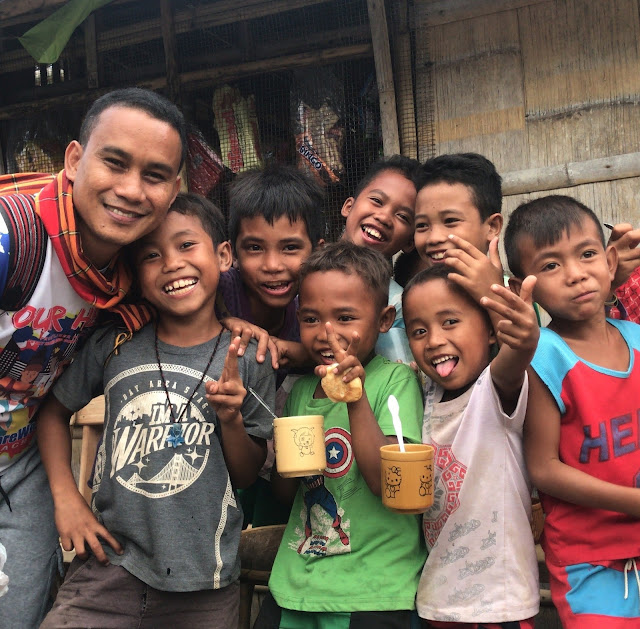
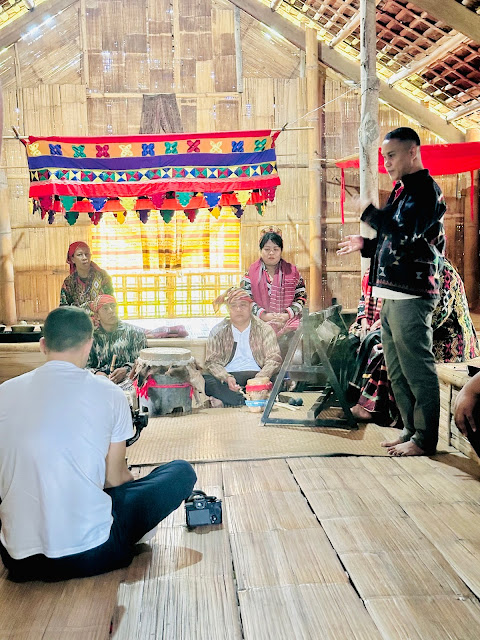
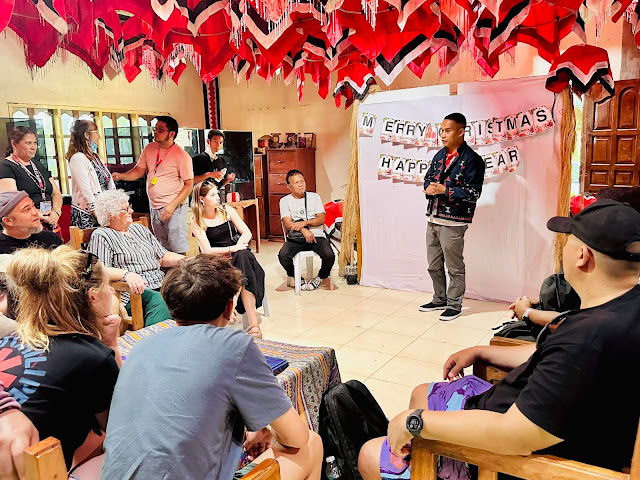
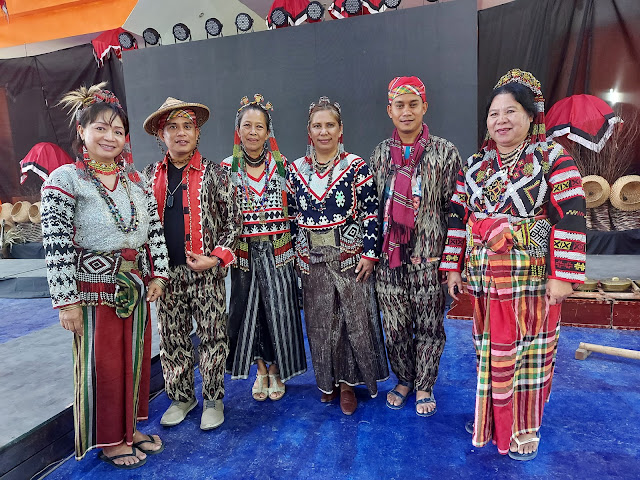


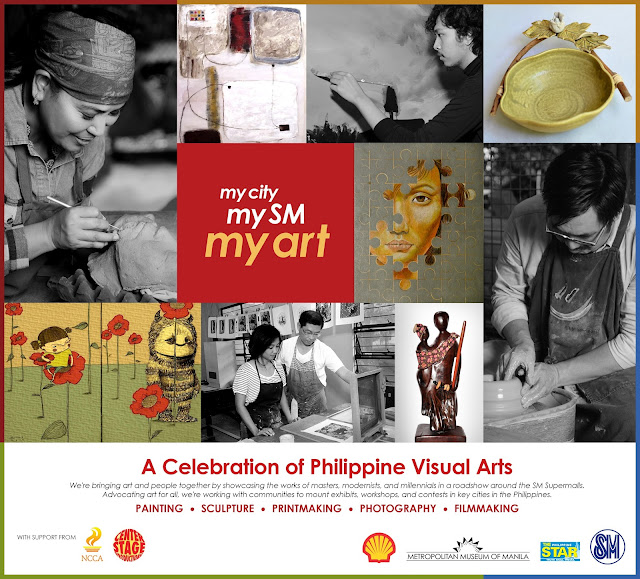
Comments
Post a Comment
The author encourages readers to post sensible comments in order to have meaningful discussions. Posting malicious, senseless and spam comments are highly discouraged.
Thank you for reading Yadu Karu's Blog.